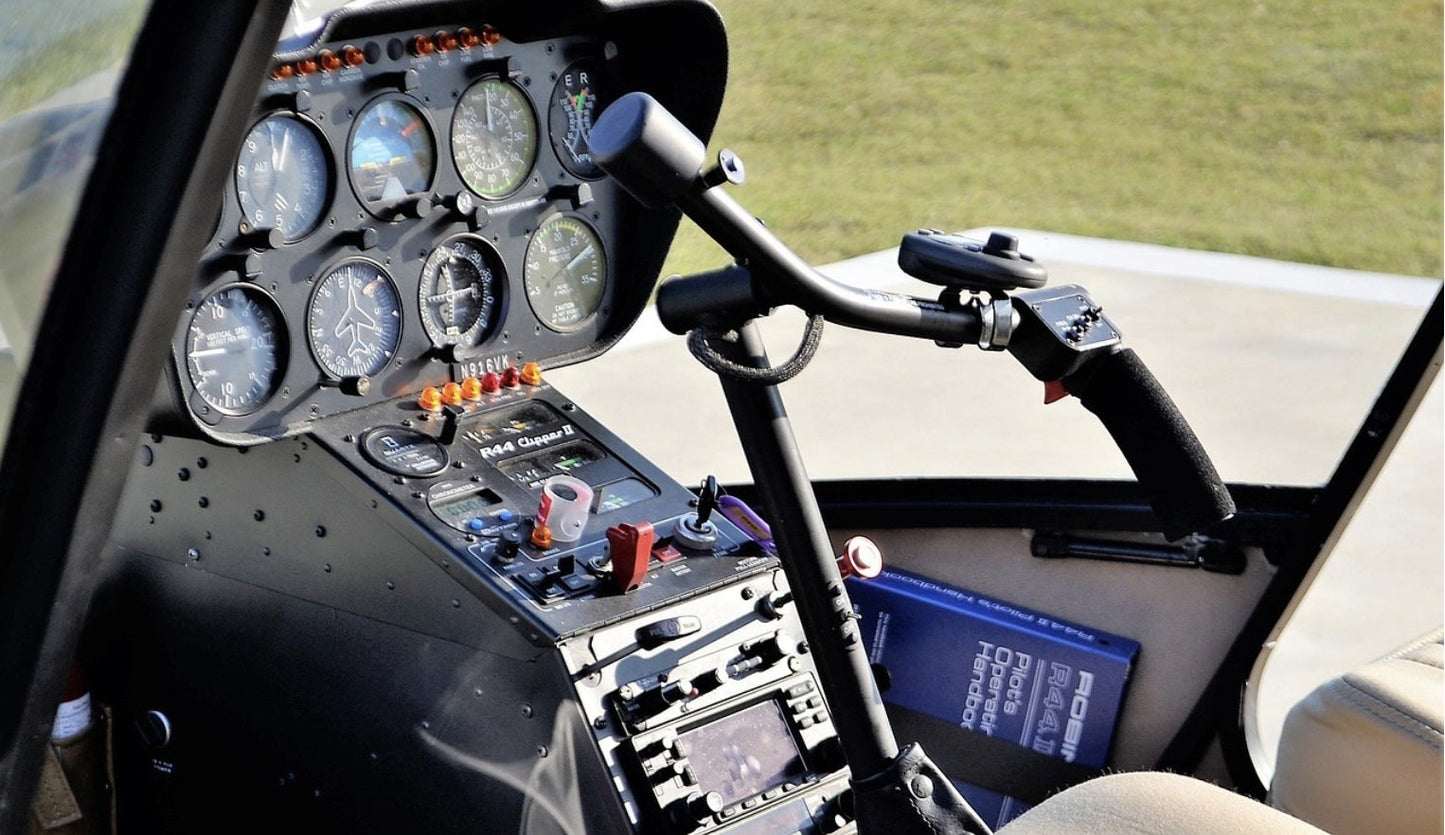
Kore Aviation - If you're thinking about becoming a pilot or are already enrolled in your first aviation program, you’ve probably asked yourself this: Is ground school difficult?
Also known as theory lessons, ground school is the starting point of your flight lessons and the first avenue for physical training in an SRV unit. This is where you learn the essential background for all practical work, including flight principles, flight protocols, and FAA regulations. As such, ground school allows you to be equipped with the necessary information and knowledge before you even touch the controls.
So, is it challenging? The encompassing answer is that it can be challenging, but in comparison, with the right disposition, strategy, and groundwork, it is entirely achievable.
What Is Ground School, Exactly?
Ground school covers the theoretical component of flight training. In other words, it is the preparatory phase of training. The fundamentals that are essential for practical flight training are taught. The main subjects are:
- Aerodynamics, flight, and aircraft performance principles and systems.
- Meteorology and its applications
- Weather and aviation interpretation
- Federal aviation regulatory system
- Airspace classification and navigation
- Radio communication protocols
- Safety and emergency procedures
- Flight planning, flight charts, and flight instruments
These concepts are essential for practical aviation and the FAA written knowledge exam. Whether you prefer a structured face-to-face class or take ground school at your own pace online, the content is designed to support your achievement in the air.
Discover More: What Is Ground School? Pilot Training Explained
Is Ground School Difficult?
The difficulty of ground school depends on your background, study habits, and familiarity with the new material. If you have never studied aviation, some concepts may feel completely new. Without prior aviation knowledge, reading METAR weather reports or understanding how lift is generated can be confusing.
However, ground school is not designed to discourage you; it is designed to prepare you: every year, thousands of pilots with no prior technical or engineering background complete this program.
The important point is this: while the concepts may be technical, the material can be learned. Anyone with a passion for flying and a desire to put in the effort can master the concepts.
Why Some Student Pilots Find Ground School Challenging
Let’s break down a few reasons why ground school may feel tough at first.
1. Aviation Terminology
Every field of aviation has its terminology. Acronyms like VFR, AIRMET, and hypoxia, to name just a few, may seem like a foreign language at the start. However, as with any new area of study, prior exposure helps in mastery, and over time, the terminology will become natural.
2. Weather and Physics
Land school does not require one to be a great mathematician, but it does require a reasonable comfort with some basic calculations. These include, but are not limited to, weight and balance, fuel consumption, and wind correction angle. While some students may be surprised by the amount of weather theory and physics involved, these disciplines are essential for safety in aviation.
3. Knowledge and Application
Knowledge of FAR regulations, chart symbols, airspace and its rules, and procedures for emergencies is essential. While the information is vast, most schools provide comprehensive study guides, visual aids, and increasingly, digital aids to aid in memorization.
4. Pressure of the Written Exam
A large number of learners express anxiety regarding FAA knowledge exams as the end of ground school approaches. The prospect of facing 60 questions within a tight time limit on a variety of subjects outside their core knowledge areas may be daunting. However, most student pilots succeed during their initial attempts, given the large number of practice exams and adequate preparation.
Discover More: How Hard Is It to Become a Pilot? An In-Depth Look at the Path, Pressure, and Payoff
How to Make Ground School Easier
Now that you know what makes ground school difficult, here’s how to make it easier for yourself.
1. Be Consistent with Your Study Time
Don’t wait until the week of your exam to start studying. Set aside a little time each day to review key concepts, watch training videos, or quiz yourself.
2. Use a Mix of Learning Resources
Some people learn best by reading, others by watching, and others by doing. To reinforce the material in different ways, use a mix of textbooks, apps, YouTube channels, and online platforms.
3. Join a Study Group or Community
Talking through tough topics with other students or instructors can help you understand them faster. You’ll also feel more supported, especially if you're doing online learning from home.
4. Practice Under Test Conditions
Take full-length practice tests to build confidence and stamina. This will help you become familiar with the test format and reduce anxiety on exam day.
5. Stay Curious and Engaged
Don’t just memorize, try to understand why things work the way they do, when you grasp the “why” behind aviation systems, learning becomes much more interesting and meaningful.
Discover More: How Long Does It Take to Become a Pilot?
So, Is Ground School Difficult?
It can be, but it is not impossible. Many students begin ground school with no aviation background at all and still succeed. Like anything new, it takes time and effort, but it is also deeply rewarding.
Once you understand the theory behind flight, your first time in the cockpit is even more exciting. You are not just pushing buttons or pulling levers, you understand what’s happening and why it matters.
Ground school is your gateway to becoming a confident, knowledgeable, and safe pilot. And trust us, it feels incredible when it all starts to click.
If you’re looking for a structured and flexible way to learn, you can check out Part Time Pilot’s Online Ground School. It’s a great option for student pilots who want to study at their own pace and build confidence for the FAA written exam.
Through our collaboration, you’ll also receive 15% off any Kore Aviation headset purchase, helping you stay clear and comfortable once you transition from studying into the cockpit.
FAQs: Student Pilot Solo Flight Requirements
-
How long does ground school usually take?
Most programs take about 8 to 12 weeks if you’re studying part time, though online options let you move faster or slower depending on your schedule. -
Do I need to be good at math to pass ground school?
You don’t need advanced math skills. Ground school covers practical calculations like weight and balance, fuel use, and wind correction. Basic arithmetic and some comfort with formulas are usually enough. -
Is online ground school accepted by the FAA?
Yes. As long as the provider is FAA-recognized, online ground school prepares you for the same FAA written knowledge exam as an in-person course. -
What happens after I finish ground school?
Once you’ve completed your ground school and passed the FAA written exam, you’ll continue into flight training. This is where you apply everything you’ve learned in the air with a certified instructor. -
Can I take ground school before I start flight training?
Yes, and many students do. Completing ground school early gives you a solid foundation, so when you step into the cockpit, you already understand the principles behind what you’re doing. -
What’s the best way to study for the FAA written exam?
A mix of consistent daily review, practice tests, and structured resources is the most effective. Online ground schools like Part Time Pilot provide quizzes and tools that mirror the FAA exam format, making you more confident on test day. -
Do I need prior aviation experience for ground school?
No experience is required. Many students start with little to no aviation background. The course is designed to teach you everything from the ground up.
Stay Focused with Clear Communication in the Cockpit
Once you finish ground school and move into flight training, communication becomes critical. A dependable aviation headset helps you stay focused, hear instructions clearly, and reduce distractions in the cockpit.
At Kore Aviation, we offer reliable, comfortable headsets perfect for student pilots. Our headsets deliver clear audio, durable design, and comfort that lasts through every flight lesson. Whether you're prepping for takeoff or reviewing radio calls on the ground, Kore Aviation headsets are designed to support your learning from day one.

